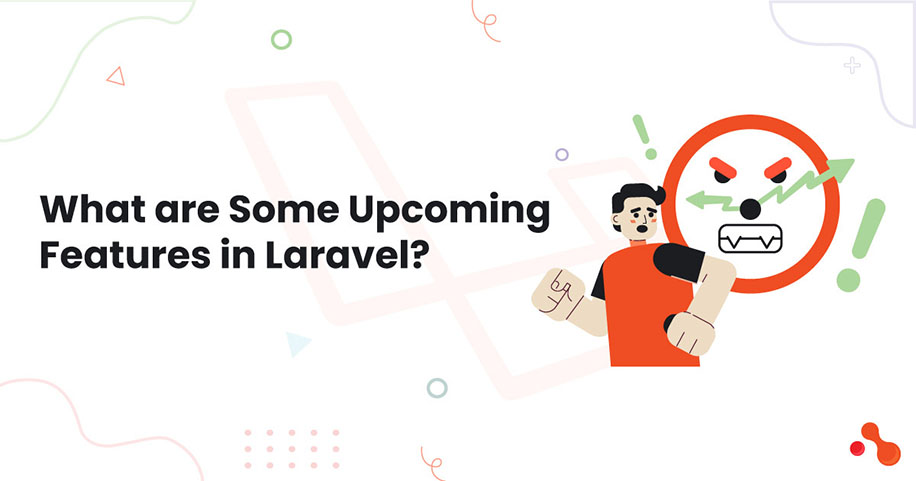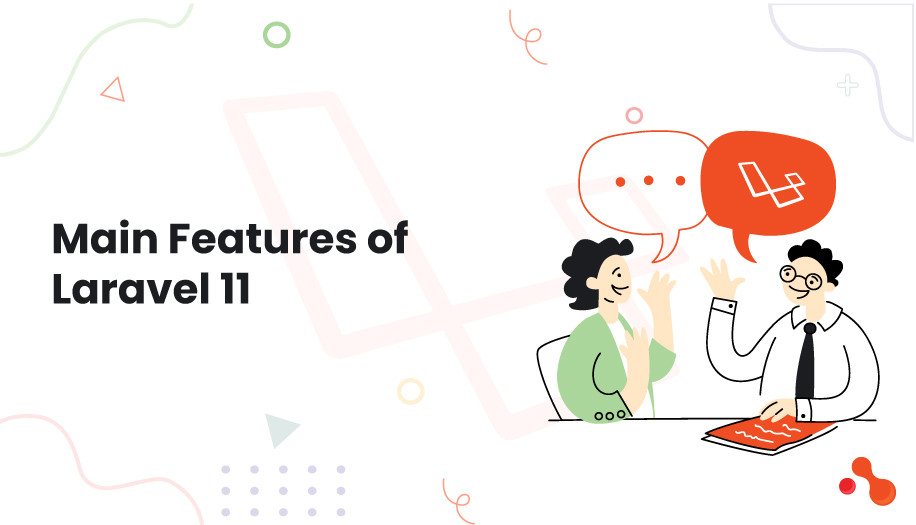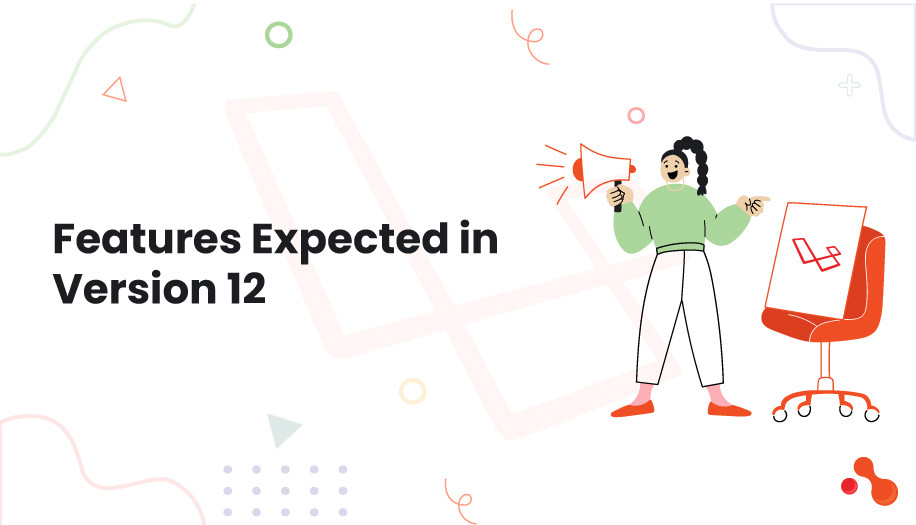Table of Contents
What are Some Upcoming Features in Laravel?
Introduction

Laravel is an open-source PHP web application framework designed for building modern, scalable, and secure web applications. It follows the model-view-controller (MVC) architectural pattern and provides a robust set of features and tools to streamline the development process. Some of the main features of Laravel include Eloquent ORM, Blade templating engine, Routing, Middleware, Artisan, and Queue management.
The current version of Laravel is 11, which was released on March 12th, 2024. The next release, with many new features, is expected in the first quarter of 2025. That is what this article is about.
Main Features of Laravel 11

Laravel 11 introduces several significant features to improve both the developer experience and the performance of applications built with the framework. Laravel, the robust framework for web artisans, has rolled out its latest iteration, Laravel 11, bringing forth an array of new features and improvements that promise to enhance the web development experience.
Here are the main features of Laravel 11:
Streamlined Application Structure: Laravel 11 has a more streamlined application structure, simplifying initial setup and reducing complexity by minimizing the default service providers and middleware included out-of-the-box.
Enhanced Blade Templating: The Blade templating engine has received enhancements for better handling of components and directives, improving the reuse and maintainability of UI components.
Security Enhancements: New security features include stronger password hashing algorithms and potential support for two-factor authentication, enhancing the overall security posture of applications.
SQLite as Default Database: SQLite will be the default database for new applications, promoting more straightforward setup and faster development. Developers can still switch to other databases like MySQL if preferred.
New Artisan Commands: Introduction of new make: commands to streamline the creation of enums, interfaces, and classes, helping developers scaffold essential elements more quickly.
Model Casting Improvements: The new Model::casts() method simplifies data type conversions in models, making the code cleaner and more efficient.
Health Check Route: A new /up route for health checks has been added, allowing developers to monitor and maintain the health of their applications easily.
Default Driver Enhancements: The framework now uses the database driver by default for sessions, cache, and queue, streamlining the initial configuration and improving the performance.
Slimmer Application Skeleton: One of the most notable changes in Laravel 11 is the introduction of a more minimalistic application skeleton. This change aims to reduce the project structure's complexity, making it more accessible, especially for newcomers. The new structure opts for a leaner directory setup, removing folders like
app/Console,app/Exceptions, andapp/Http/Middleware. Routes, Middlewares, and Exceptions are now registered in thebootstrap/app.phpfile, streamlining the process and reducing the initial overhead for developers.Enhanced Configuration and Flexibility: Laravel 11 has significantly simplified configuration. Some config files have been removed, and others have been streamlined to reduce redundancy and improve automation within the framework itself. This version also introduces a slimmer config version, allowing developers to publish config files manually if needed, providing greater control and flexibility over the application settings.
Optional API and Broadcasting: Laravel 11 has made API and broadcasting features optional in a move towards modularity. The
routes/api.phpfile and Laravel Sanctum are not installed by default but can be added easily using Artisan commands. This allows developers to tailor the framework to their application's specific needs, installing only what is necessary and keeping the project lightweight.New Defaults: Pest and SQLite: Laravel 11 sets new defaults that indicate current web development trends. Pest, a testing framework, and SQLite, a database engine, are now the default choices, reflecting a shift towards more streamlined and efficient development practices. These defaults aim to provide developers with a solid foundation for building and testing their applications.
PHP 8.2 Compatibility: Ensuring compatibility with the latest version of PHP, Laravel 11 fully supports PHP 8.2. This ensures that developers can leverage the latest features and improvements in the PHP language, maintaining the performance and security of their applications at the highest standards.
These features collectively aim to make Laravel even more robust, secure, and developer-friendly, ensuring it remains a top choice for modern web development projects.
Features Expected in Version 12

Laravel is expected to be released in the first quarter of 2025 with many new features. However, there is little discussion on the new features as yet. It is rumored that there might be changes to the string element. There are likely to be improvements to the test features and fixes for the date format.
Some of the other features that are rumored to be in the making are:
Route aliases
Addition of several methods for "If".
Auth User impersonation
Allow for contextual binding using attributes.
Optimize bootstrap time by using a hashtable to store providers.
Multiline strings
Conclusion
The release of Laravel 11 marks a significant milestone in the framework's journey. With its focus on simplicity, flexibility, and modern standards, Laravel 11 is poised to empower developers to build more efficient, secure, and scalable web applications. As the Laravel community continues to grow and evolve, we expect Laravel to remain at the forefront of web development innovation.
Laravel is still expected to be the preferred method of developing cutting-edge solutions over Core PHP. Several new additions are in the making for version 12; however, there are no details about them as yet.
Overall, while we can't predict Laravel's future in 2025 with certainty, we can expect it to evolve and adapt to meet the needs of developers and organizations building web applications in an ever-changing technological landscape. As Laravel continues to innovate and grow, it will likely remain a leading choice for PHP developers seeking a robust and modern framework for their projects.
